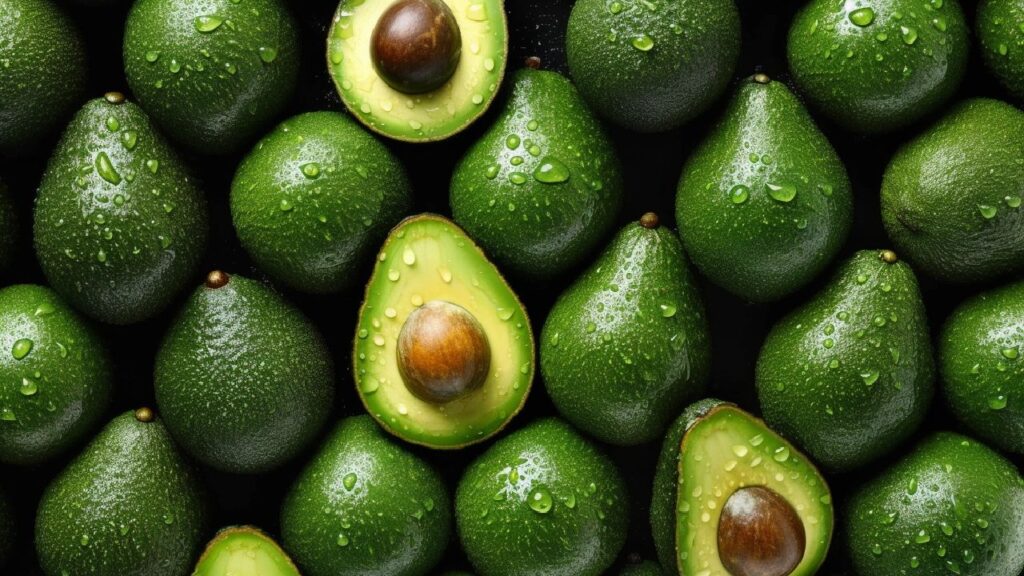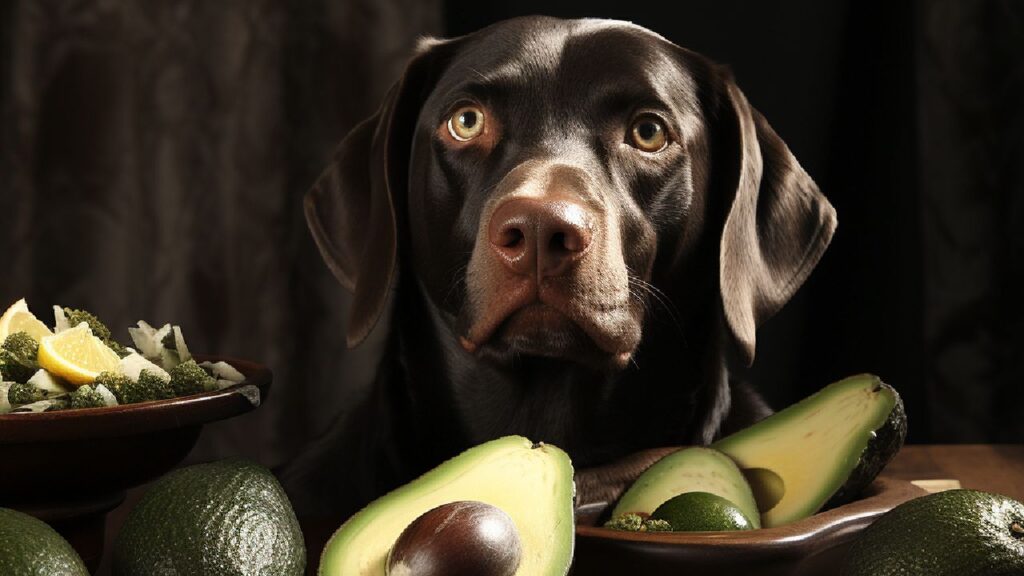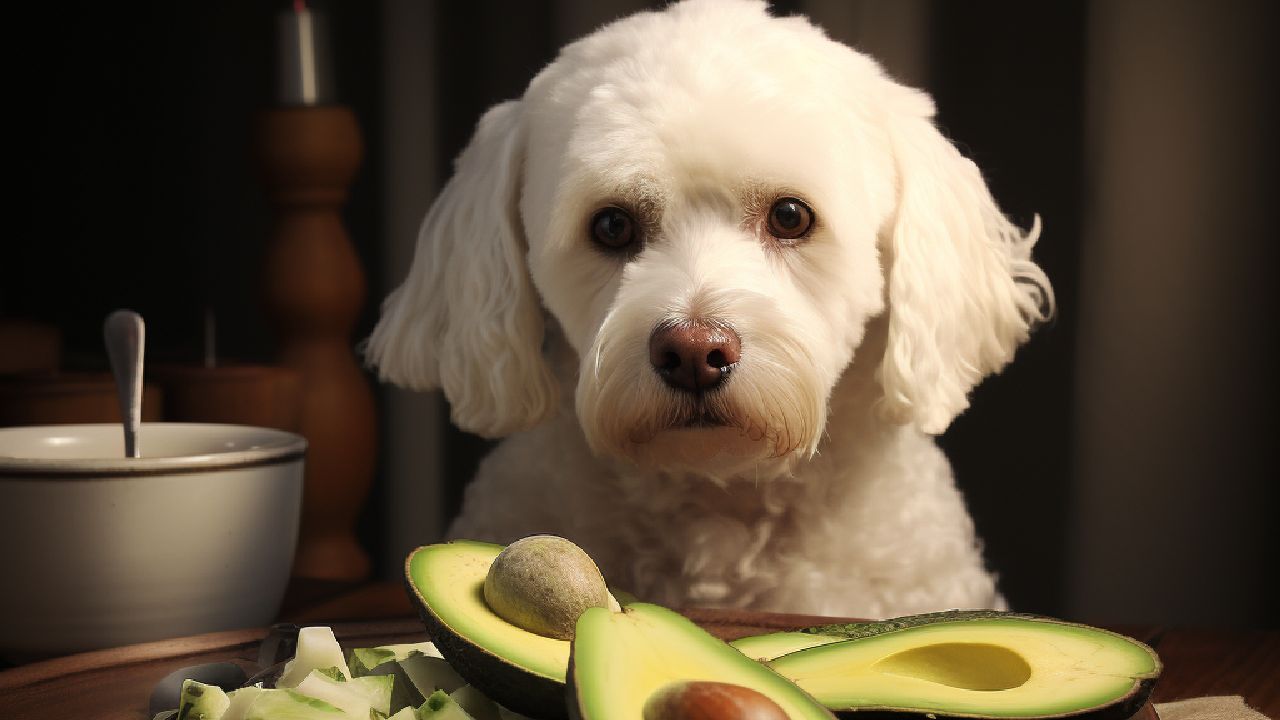With its creamy texture and rich flavor, avocados have become a beloved food for many humans. Avocados have found their way into various culinary delights, from being spread on toast to whipped into guacamole.
However, as a responsible dog owner, you must consider the implications of sharing this fruit with your furry friend. The question looms: Can dogs eat avocados?
An Inside Look on Dogs Eating Avocado
Is avocado toxic for dogs? Less likely. Avocados are more harmful to birds. When talking about cats and dogs, avocados can cause GI issues. Pancreatitis is a big concern, and there is a potential risk of foreign body ingestion.
“It is definitely not recommended to share avocados with dogs. Opting for dog-friendly treats and snacks is the best course of action.” – Veterinarian Mykhailo Ozmenchuk.
Check out our comprehensive guide to learn what human foods dogs can and can’t eat.
Though avocados contain nutrients that may seem beneficial, dogs have unique dietary needs and metabolisms. While useful for humans, the healthy fats that avocados offer can lead to gastrointestinal issues and pancreatitis in dogs, highlighting the need for caution and specialized canine nutrition.
The Nutritional Profile of Avocados
Avocados are often celebrated for their impressive nutritional content, boasting an array of vitamins, minerals, and healthy fats that offer potential benefits to humans. The fruit contains vitamins such as K, E, C, and several B vitamins.
Additionally, avocados provide a good source of dietary fiber and contain minerals like potassium and magnesium. One of the most notable features of avocados is their high content of monounsaturated fats, commonly known as “good” fats.
These fats have been associated with heart and skin health and reducing human inflammation. While this fat profile might sound promising, it’s essential to note that dogs have different nutritional requirements than humans.
The Role of Healthy Fats in Canine Nutrition
Dogs require a balanced and specific diet to meet their unique nutritional needs. While fats are essential to their diet, not all are created equal. Healthy fats, such as those found in fish and specific plant-based sources, can contribute positively to a dog’s overall health.
However, the healthy fat content in avocados sometimes translates to different benefits for dogs. Dogs’ dietary needs differ significantly from those of humans, primarily due to their different metabolisms and digestive systems.

Understanding the Potential Risks of Persin
Persin is a natural compound found in avocados that has sparked discussions and concerns among dog owners and veterinarians alike. While persin is not inherently harmful to humans in moderate amounts of ripe avocados, its effects on dogs can differ. This leads us to the question:
What Does This Mean for Your Dog?
The answer could be more complex. While small amounts of ripe avocado flesh might not pose an immediate threat to most dogs, it’s essential to be cautious due to the variability in individual sensitivities. Some dogs may be more sensitive to persin and experience adverse reactions even from consuming small amounts of avocado.
The concentration of persin varies throughout the avocado plant. While the fruit’s flesh contains relatively low levels of persin, other parts of the plant, such as the leaves, pit, and skin, tend to have higher levels.
Avocado leaves and pits contain the highest levels of persin and should be strictly avoided when feeding your dog. Avocado skin also contains higher levels of persin than flesh, making it an additional concern. Feeding your dog avocado skin is not recommended, as it can increase the risk of persin-related reactions.
The American Food and Drug Administration (FDA) provides detailed insights into avocado toxicity in pets for pet owners concerned about the potential risks associated with feeding avocados to their dogs.
Signs of Avocado Toxicity in Dogs
The symptoms of avocado toxicity in dogs can vary depending on the amount consumed, the dog’s size, and their sensitivity. Common signs of avocado toxicity may include:
- Gastrointestinal upset: Vomiting, diarrhea, and abdominal discomfort.
- Breathing difficulties: Rapid or difficult breathing due to potential effects on the respiratory system.
- Lethargy: Unusual tiredness or lack of energy.
- Swelling or edema: The face, paws, or other body parts are swelling.
- Difficulty walking: Loss of coordination or weakness.
- Tremors: Involuntary shaking or muscle tremors.
When to Seek Veterinary Assistance
If you notice any of these symptoms or suspect that your dog has consumed avocado, it’s advisable to seek veterinary assistance. It’s always better to err on the side of caution and have a professional evaluate your dog’s condition.
Provide your veterinarian with as much information as possible about avocado consumption, including the type and amount consumed. Avocados, like any food, can affect dogs differently, and individual sensitivities can play a role in determining whether a dog will experience adverse reactions.
Consult your veterinarian whenever you have concerns about your dog’s well-being to ensure its health and safety.

Avocados should never constitute a significant portion of your dog’s diet. Instead, it can be offered as an occasional treat, provided it’s free from pits, skin, and other potential hazards.
Avoiding Foods with Hidden Avocado Content
Aside from offering plain avocado flesh, you must be cautious about the foods you’re feeding your dog. Many commercial products, especially those with a health-conscious or exotic focus, might contain avocado as an ingredient. Always read labels carefully and avoid any products that contain avocado, especially in larger amounts.
Conclusion
Regarding avocados and dogs, responsible ownership involves understanding the potential risks, avoiding foods with hidden avocado content, and making informed decisions about treatment options.
By approaching avocado consumption with knowledge and care, you can ensure your canine companion’s health and well-being while safely indulging their curiosity and appetite.
In this article, we utilized insights from Cornell University’s College of Veterinary Medicine on canine nutrition, including the safe selection of foods and the risks associated with avocados, as a reference for our discussion.

FAQs
Can dogs eat guacamole?
Guacamole often contains additional ingredients like onions, garlic, and spices, which can harm dogs. Moreover, guacamole’s fat and seasoning content may not be suitable for canine consumption. It’s best to avoid sharing guacamole with your dog.
Are some avocado varieties safer for dogs than others?
Generally, plain, ripe avocado flesh is safer for dogs than other parts of the avocado. However, it’s essential to avoid giving your dog avocado skin, pit, or leaves, as these contain higher levels of persin and pose potential risks.
Can avocados be a part of a balanced diet for dogs?
Avocado is not necessary in a dog’s diet. A well-balanced commercial dog food that meets their nutritional needs is a safer option. Consider alternatives like blueberries, carrots, and cooked sweet potatoes to offer fruits and vegetables.
Consider alternatives like blueberries, carrots, and cooked sweet potatoes to offer fruits and vegetables. Check out a comprehensive list of fruits and vegetables that are safe or unsafe for dogs.
Can avocados cause allergies in dogs?
While avocado allergies in dogs are rare, they can still occur. If you notice any signs of an allergic reaction, such as itching, redness, or gastrointestinal upset, consult your veterinarian to determine the cause and appropriate action.
What should I do if my dog eats avocado accidentally?
It is likely okay if your dog consumes some ripe avocado flesh and shows no adverse effects. However, if your dog has ingested larger parts like the pit, skin, or other potentially toxic foods, it’s best to contact your veterinarian immediately.






Man, I’ve always wondered if it’s cool for dogs to chow down on avocados, and this blog post really broke it down for me! Turns out, they can munch on some, but no pit or skin, got it. I’ll keep this in my back pocket for those special doggie snack moments. Thanks for the dope info, y’all!
Wow, I’ve been researching dog-safe fruits and stumbled upon your avocado piece. Great info! But man, it’s tough to keep track of what’s cool and what’s not for our pups. Is there a simple guide you’d recommend for dog-friendly foods?
Avocado is my go-to snack, but never considered it for my dog. Your article was an eye-opener!